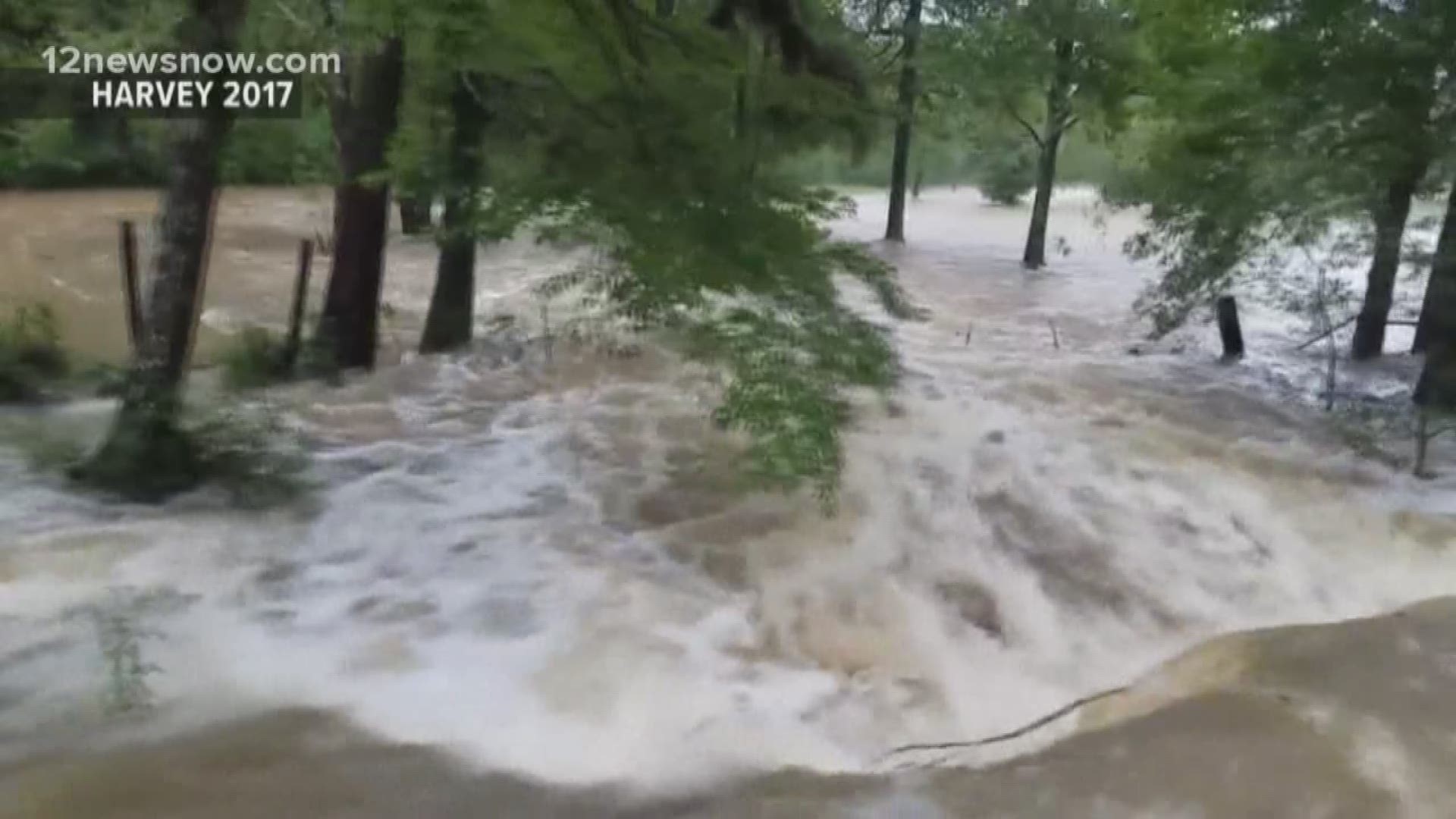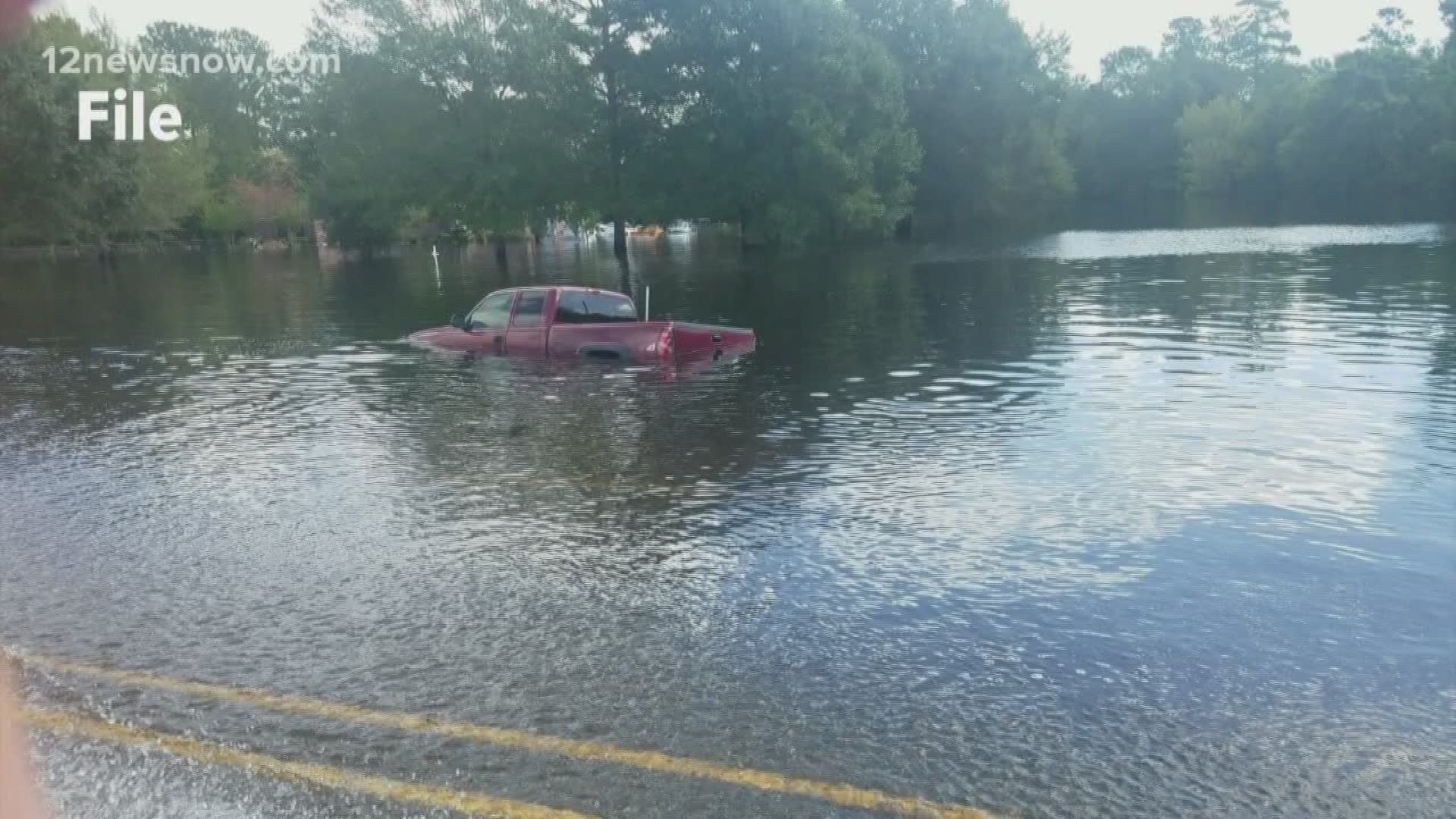AUSTIN, Texas — The 2020 hurricane season has arrived. Considering the thousands of homes impacted from Tropical Storm Imelda and Harvey, some Southeast Texans may still wonder how this year's rainfall will affect their houses.
The Texas General Land Office released a state action plan in 2018 to help reduce the impact of future storms.
Today, the Texas GLO approved more than two million dollars in Harvey disaster recovery funds to improve flood and drainage facilities in Jefferson County.
Texas Land Commissioner George P. Bush made the announcement Friday, June 5, 2020.
"Hurricane Harvey devastated communities across the Texas coast. These recovery funds are critical to improving local infrastructure that will protect lives, homes and businesses from future storms,” said Commissioner Bush.
With the $2,523,443 in recovery funds, Jefferson County will be able to widen Taylor's Bayou, replace the Highway 124 bridge to facilitate proper stormwater conveyance and reduce the impact of flooding in the future.
During Hurricane Harvey, the limited width of Taylor's Bayou prevented stormwater from flowing effectively.
Commissioner Bush and the Texas General Land Office were appointed by Governor Greg Abbott to lead Hurricane Harvey housing recovery efforts.
These efforts were funded by $5.676 billion in Community Development Block Grant Disaster Recovery (CDBG-DR) funds from the U.S. Department of Housing and Urban Development.
Commissioner George P. Bush and the Texas General Land Office was appointed by Governor Greg Abbott to lead the historic Hurricane Harvey housing recovery efforts funded by $5.676 billion in Community Development Block Grant Disaster Recovery (CDBG-DR) funds from the U.S. Department of Housing and Urban Development.
The GLO allocated $413 million of the allocation for infrastructure projects to protect communities affected by the storm. The GLO allocated the funds to regional Council of Governments' (COGs) based on a HUD approved needs assessment. The locally-led COGs then conducted methods of distribution (MODs) for determining infrastructure and buyout and acquisition amounts for cities and counties within each jurisdiction. COG boards are comprised of officials from the impacted communities elected in part to prioritize funds allocated for recovery programs. The MOD process requires public engagement and the GLO reviewed each MOD for compliance with federal rules and requirements before approving each plan.


